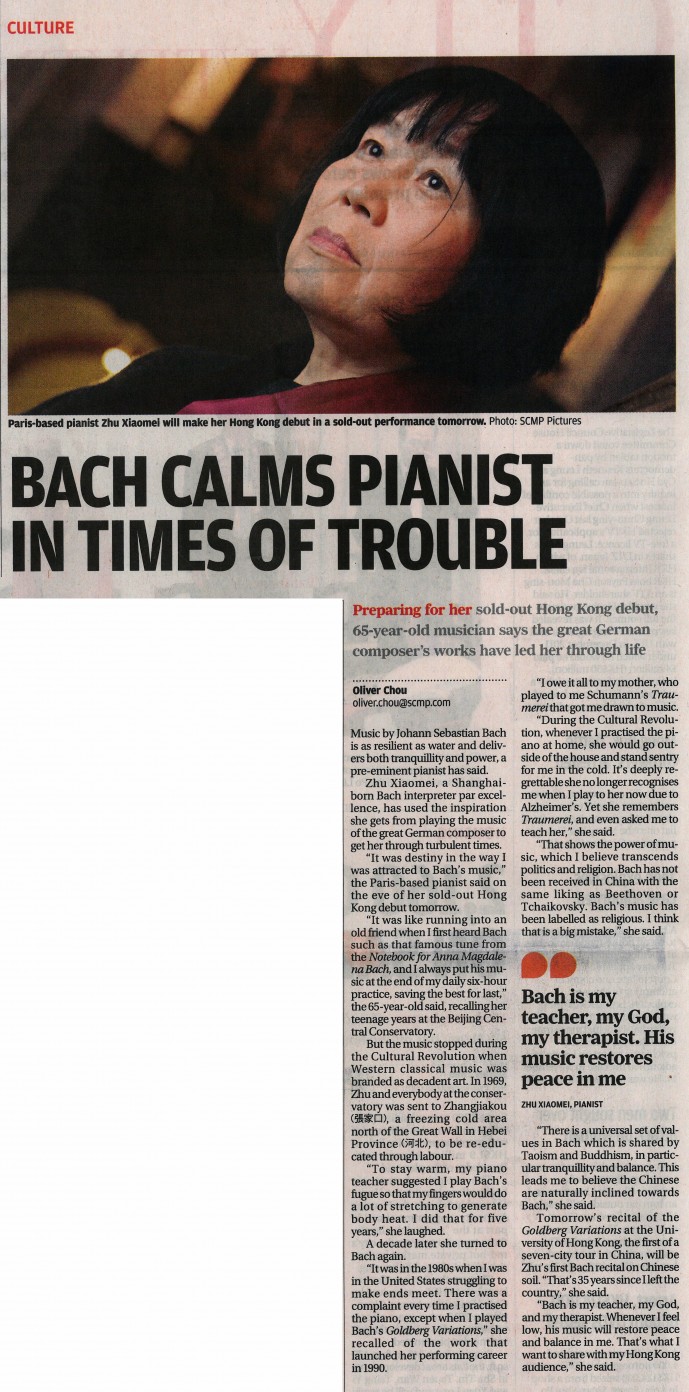南華早報 South China Morning Post

Music by Johann Sebastian Bach is as resilient as water and delivers both tranquillity and power, a pre-eminent pianist has said.
Zhu Xiaomei, a Shanghai-born Bach interpreter par excellence, has used the inspiration she gets from playing the music of the great German composer to get her through turbulent times.
“It was destiny in the way I was attracted to Bach’s music,” the Paris-based pianist said on the eve of her sold-out Hong Kong debut tomorrow.
“It was like running into an old friend when I first heard Bach such as that famous tune from the Notebook for Anna Magdalena Bach, and I always put his music at the end of my daily six-hour practice, saving the best for last,” the 65-year-old said, recalling her teenage years at the Beijing Central Conservatory.
But the music stopped during the Cultural Revolution when Western classical music was branded as decadent art. In 1969, Zhu and everybody at the conservatory was sent to Zhangjiakou , a freezing cold area north of the Great Wall in Hebei Province , to be re-educated through labour.
“To stay warm, my piano teacher suggested I play Bach’s fugue so that my fingers would do a lot of stretching to generate body heat. I did that for five years,” she laughed.
A decade later she turned to Bach again.
“I owe it all to my mother, who played to me Schumann’s Traumerei that got me drawn to music.
“During the Cultural Revolution, whenever I practised the piano at home, she would go outside of the house and stand sentry for me in the cold. It’s deeply regrettable she no longer recognises me when I play to her now due to Alzheimer’s. Yet she remembers Traumerei, and even asked me to teach her,” she said.
“That shows the power of music, which I believe transcends politics and religion. Bach has not been received in China with the same liking as Beethoven or Tchaikovsky. Bach’s music has been labelled as religious. I think that is a big mistake,” she said.
“There is a universal set of values in Bach which is shared by Taoism and Buddhism, in particular tranquillity and balance. This leads me to believe the Chinese are naturally inclined towards Bach,” she said.
Tomorrow’s recital of the Goldberg Variations at the University of Hong Kong, the first of a seven-city tour in China, will be Zhu’s first Bach recital on Chinese soil. “That’s 35 years since I left the country,” she said.
“Bach is my teacher, my God, and my therapist. Whenever I feel low, his music will restore peace and balance in me. That’s what I want to share with my Hong Kong audience,” she said.

